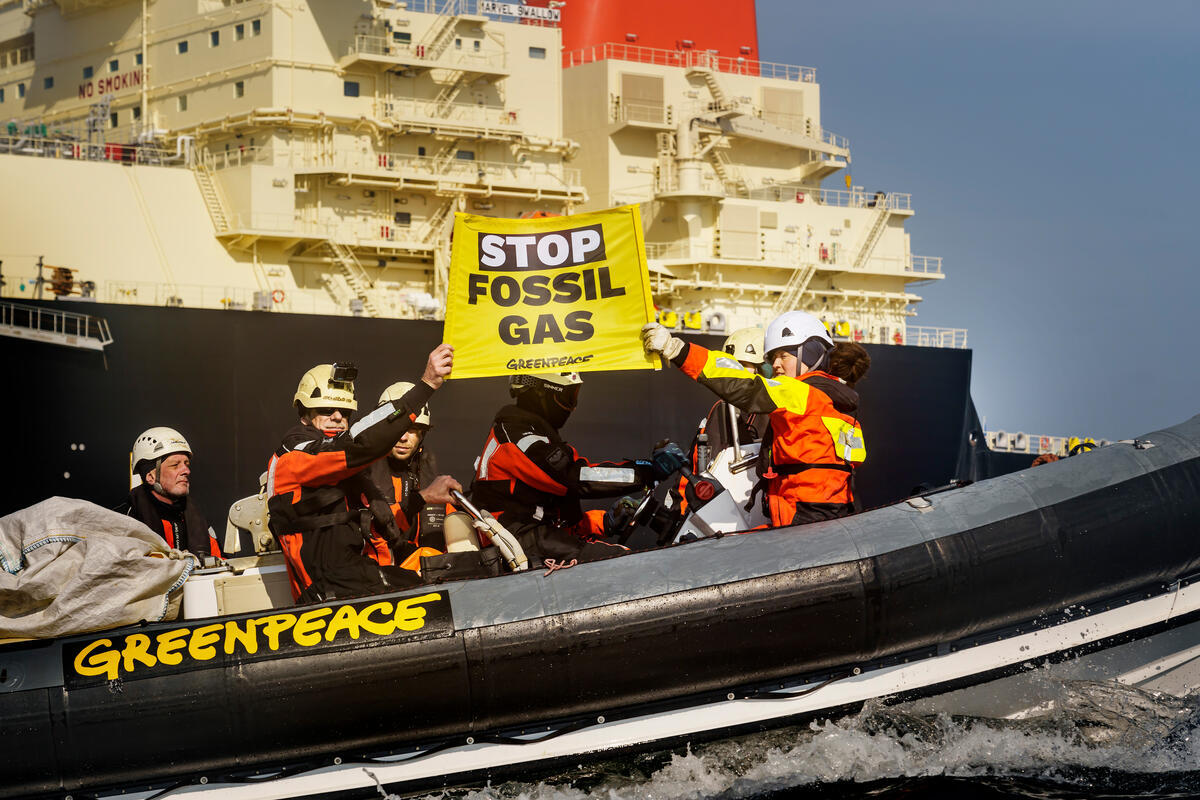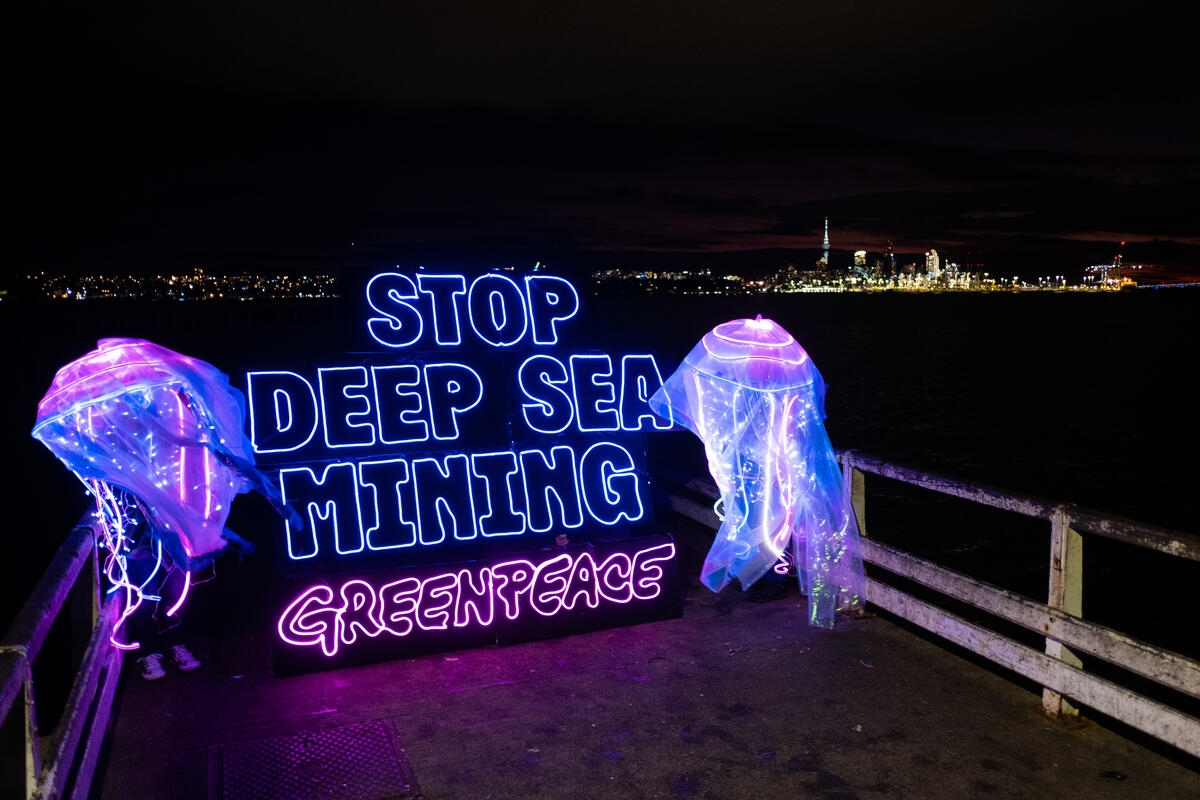Seattle, United States – A newly released Greenpeace USA report confirms increased oil tanker traffic from the proposed Trans Mountain Expansion Project could deepen threats to marine life — including the region’s dwindling orca population — and impact coastal communities.
The report uses ship location data to map tar sands oil tanker routes from Vancouver, Canada down the Pacific Coast of the United States, highlighting a seven-fold increase in tanker traffic from the Westridge Marine Terminal in British Columbia if the Trans Mountain Expansion Project is completed. The report spells out additional potential environmental, social and economic impacts of the controversial tar sands oil pipeline project, which the Canadian government recently committed to purchasing for CAD $4.5 billion in public funds.
Tim Donaghy, PhD, Greenpeace USA Senior Research Specialist and author of the “Tar Sands Tanker Superhighway Threatens Pacific Coast Waters” report, said:
“The threats posed by the Trans Mountain Expansion Project don’t end at the water’s edge. The costs and risks of this pipeline will be borne by Indigenous Peoples and communities all along the pipeline and tanker superhighway routes, as well as by the wildlife and ecosystems of the region. For the health and safety of our communities, local economies, marine life and our climate, it is critical that banks and the Canadian government do not provide any financial services for this pipeline or any other tar sands projects.”
The report’s findings include:
-
More than half of the tanker departures from the Westridge Marine Terminal sail the length of the US Pacific Coast to southern California, with some heading as far as Asia and Hawaii, putting vast swaths of the Pacific Ocean at risk of a diluted bitumen spill.
-
Diluted bitumen, the tar sands oil that would be transported by the Trans Mountain Expansion Project and then by tankers through the Salish Sea, is significantly more difficult and costly to clean up than conventional crude oil.
-
As previous studies have warned, the endangered southern resident orca population could be driven toward extinction by the increased ship noise as well as the risk of oil spills and ship collisions resulting from the Trans Mountain Expansion Project.
-
In the US alone, communities that rely on fishing and tourism have already suffered billions of dollars in economic damages following previous catastrophic marine oil spills. The USD $60 billion coastal economy of the US Pacific Coast currently supports more than 150,000 jobs in commercial fishing and more than 525,000 jobs in coastal tourism. Studies have shown a major oil spill in Washington state would cost USD $10.8 billion, and one in Vancouver, Canada would cost CAD $1.2 billion.
The Indigenous-led movement against pipelines continues to win victories and gain momentum across North America. In just the past two years, two out of five proposed new tar sands oil pipelines have been canceled in the face of public pressure, a growing mandate from regulators for businesses to act on climate change, and failures to respect Indigenous rights. As major banks like HSBC, BNP Paribas and ING continue to pull their funding for tar sands oil projects, the message to banks and shareholders should be clear: pipelines that violate Indigenous sovereignty and threaten the environment are too great a financial and reputational liability.
ENDS
Notes:
As of this month, there are only 75 southern resident orcas remaining in the Salish Sea.
In the past year, a steady stream of international financial institutions have distanced themselves from pipelines and the oil industry.
The full report by Greenpeace USA, “Tar Sands Tanker Superhighway Threatens Pacific Coast Waters”, is available here.
Photos and videos:
Photos of endangered orcas and oil tankers in the Salish Sea are available here: https://media.greenpeace.org/collection/27MZIFJWENGCV
Contacts:
Leola Abraham, Global Communications Lead, Greenpeace USA: +1 (202) 413-8930, [email protected]
Greenpeace International Press Desk, +31 (0)20 718 2470 (available 24 hours), [email protected]



